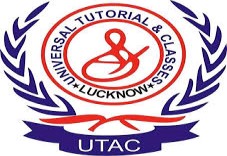Perhaps you have already graduated from an engineering degree and are looking to boost your chances of career success. Or probably you’re unsure of how to make it in the industry. Moreover, you may be interested in how you can get your foot on the career ladder. Engineering is such a wide field that it’s important to plan on the path you wish your career to take. Engineering has become an extremely popular industry in recent years, meaning achieving success is even more difficult than ever before. However, we have put together some useful tips on how to make it in the engineering industry:
Define Your Goals
In most cases, engineers don’t fall into the industry by chance. From a young age, they follow their dreams of becoming a professional engineer. They take all the necessary steps to get there. It may be the case that you’ve only just come to the decision that the engineering career is for you. Still, knowing how to reach your new goals may seem an impossible task.
Continuously be on the lookout for development opportunities to get on the right path. For example, you may wish to become an engineering manager. Consequently, you always need to keep yourself up to date with the ever-changing technical trends. You can do this by performing your own research or attending specific engineering industry events to learn more in-depth knowledge.
Commit Yourself to Professional Development
If you haven’t yet thought about studying an engineering degree, it’s time you do it. Agreed that higher-level education isn’t a fundamental requirement for an engineering career. Still, it is an avenue that will boost your chances of success in the long-term. No-one knows how the engineering industry is set to change or the skills and knowledge that’s going to be needed. So, don’t cut yourself short of opportunities early on.
If you have already graduated from an undergraduate degree, why not study a master’s qualification? Doing so will add another string to your bow and enhance your chance of getting hired by companies. Studying an engineering management online masters program, for example, will develop your professional engineering knowledge to apply it into a project management context. This extra qualification could guarantee you a much higher wage than you may have received from a standard undergraduate degree.
Work on Your Soft Skills
All companies will expect you to have useful soft skills that can be transferred into the workplace environment. Hence, it is regardless of which industry you choose to work in. Moreover, it’s natural that you’ll need to have the necessary qualifications to secure a role in engineering. Still, you’ll need to prove that you acquire everyday life skills too.
For instance, you’ll need to strive for having good communication between colleagues and becoming able to work in a team. Similarly, you may require delivering a presentation to a group of people. These skills may not come as second-nature to you. Hence, you may need to work on them.
Make Yourself Known
Jobs probably won’t fall into your lap as you may have hoped. Therefore, you may need to do some job-hunting yourself. If you have been rejected from numerous jobs, it would be worth doing a spot of networking to see if you can make contacts with professionals in the field. Such a simple, yet clever move could allow you to build close connections with professionals. These experts will then inform you of new opportunities that arise. You can contact professionals by searching LinkedIn or Twitter or get brave and attend industry events to meet professionals face-to-face. Doing so will not only build on your industry contacts but will also boost your confidence and communication skills.
Stay Flexible
You may already have a specific job role in mind, but when it comes to the engineering industry, it’s best to remain flexible and wait for new opportunities to arise. As engineering is very technical-based, changes are constantly being made to the way in which the industry is run, so you’ll need to be someone who can adapt well. You could be employed in a role in the next few years that doesn’t even exist today, but that’s just the nature of the industry that you’re going to have to get used to. It’s important for you to define your goals as early as possible but remain open-minded about what may be on offer to you.
Identify Role Models
You can learn a great deal from role models and mentors in the industry, which may help to develop your career. If you look up to someone professionally and want to learn more, it would be wise to email or write to them and ask them valuable questions about how they got started and what they would advise you should do next. Don’t just look solely at the type of work they do, but how they managed to rise to success through the choices they made during their career. This may give you the fire in your belly you need to push forward.
Develop a Portfolio of Projects
During your studies or even within your work experience placements, it would be a good idea to build a professional portfolio to showcase your efforts and skills in engineering. This will provide you with some hard evidence to show your employer and allow you to stand out from your competition, while other new graduates may only have the relevant course under their belt with no proof of practical work.
A portfolio shows your prospective employer that you’ve taken what you’ve learned from class and adapted it into a real-life situation.
Take on Further Training
If you’ve completed an undergraduate degree and perhaps even a master’s degree, there’s no reason why you can’t take on further training in a business course. Engineering requires a significant level of business knowledge, as understanding the idea of return on investment is a vital factor within the industry.
You will want to attend networking events and conferences discussing any changes in the industry. Not doing so can cause you to fall behind. It is up to you to keep on top of your ambitions.
You Might Want To Read:
Gate Syllabus Mining Engineering, Upsc Geography Physical Geography Notes, State Level Exams Online Test, Karnataka Public Service Commission Rural Development And Co Operation Mock Test Paper 11, Karnataka Public Service Commission Rural Development And Co Operation Mock Test Paper 12, Class 10 Technology Science Question Paper 3 2015, Nmat Vs Cat, Throwing The Fitness Rut Away, Folk Literature Question Paper 4 2009, Chhatisgarh Board Class 12 Science Question Paper 2
Leave your vote
This post was created with our nice and easy submission form. Create your post!










Like what you read? Give author a thumbs up?
Bookmark this article to read later, drop a remark in comment section and share with your friends..